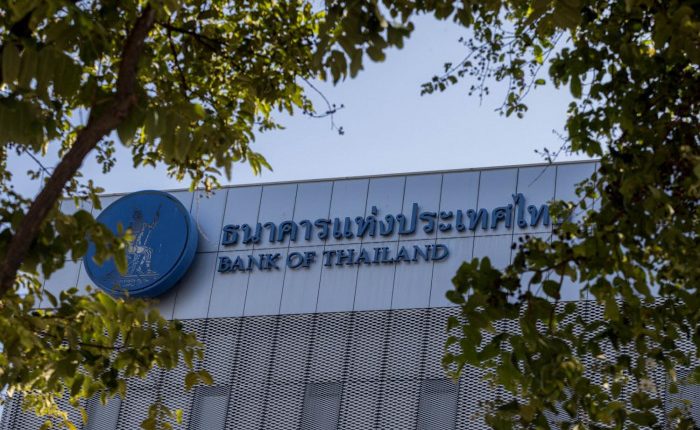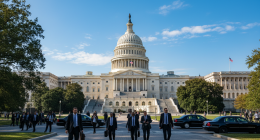The independence of the Bank of Thailand (BoT) has become a hot topic as economists stress its vital role in ensuring economic stability and growth for the country. Concerns have been raised about potential external influences on the central bank, and economists are urging policymakers to safeguard its autonomy. This article explores the importance of central bank independence and the ongoing debate around it.
Why Central Bank Independence Matters
Economic Stability and Growth
Economists, such as Nonarit Bisonyabut from the Thai Development Research Institute, emphasize that countries with autonomous central banks generally experience better economic outcomes. These include lower inflation rates, more stable economies, and stronger overall economic growth. Maintaining independence allows the central bank to operate based on academic and empirical evidence, free from political interference.
Global Examples of Central Bank Autonomy
Globally, nations with independent central banks tend to have more consistent and effective monetary policies. The Federal Reserve in the United States and the European Central Bank are often cited as examples where independent decision-making has supported long-term economic growth and stability.
Challenges in Selecting a New Central Bank Chairman
Delayed Decision in the Selection Process
The independent committee responsible for selecting a new Bank of Thailand board chairman has faced delays, citing the need for more time to evaluate the candidates. This delay has raised concerns among economists and financial experts, as the role of the board chairman is crucial in shaping the future of Thailand’s monetary policies.
Importance of Political Independence in the Role
Nonarit described the board chairman as a “super CEO” who must remain free from political influences. The position requires forward-thinking and the ability to analyze economic issues through the lens of academic research. Open dialogue between the central bank and the government is necessary to address differing perspectives and to evaluate the impact of proposed economic policies.
Private Sector’s Concerns and Expectations
Confidence Among Stakeholders
A source from the banking industry highlighted the importance of selecting a new board chairman who can instill confidence in the private sector, including businesses, investors, and the public. The banking industry is eager to see cooperation between the central bank and the government, particularly in implementing fiscal and monetary policies that will aid Thailand’s economic recovery.
Focus on Vulnerable Groups
The private sector has also expressed concern over the country’s high levels of household debt. Economists agree that addressing this issue will require close coordination between fiscal and monetary authorities. Vulnerable groups, such as low-income earners and those heavily burdened by debt, must be prioritized in these efforts.
Influence Over Key Monetary Policy Decisions
Role in Selecting the Next Governor
While the new board chairman may not be directly responsible for day-to-day operations, the position holds significant sway over major decisions, including the selection of the next central bank governor after Sethaput Suthiwartnarueput’s term ends in September 2025. This decision will have a lasting impact on Thailand’s future economic strategies.
Policy Rate and Government Stimulus Measures
The Pheu Thai-led government is pushing for a central bank policy rate cut to align with its stimulus measures aimed at boosting the Thai economy. While the board chairman does not directly set policy rates, the position can indirectly influence decisions that shape the overall economic climate. This raises concerns about whether political pressure could affect the bank’s autonomy in the long term.
Market Concerns Over Policy Coordination
Balancing Monetary and Fiscal Policies
Gun Hathaisattha, equity strategist at CGS International Securities (Thailand), noted that market watchers are closely following the central bank’s leadership selection. Improved coordination between monetary and fiscal policies is expected to help Thailand navigate its economic challenges.
Potential Risks of Downgrades
Rising tensions between the Bank of Thailand and the Finance Ministry could lead to a potential downgrade in Thailand’s credit rating. This is particularly concerning if the government’s 10,000-baht cash handout program fails to stimulate the economy as anticipated. If the handout proves ineffective, the burden on public debt could grow, increasing the risk of a downgrade.
Future of Thailand’s Monetary Policy
Possible Rate Cut in the Fourth Quarter
Economists predict that the Bank of Thailand may implement a policy rate cut in the fourth quarter of the year. A downgrade in the country’s GDP growth would likely provide more justification for such a move. The decision is expected to be made at either the October or December monetary policy meeting.
Conclusion
The independence of the Bank of Thailand is critical for maintaining economic stability and fostering long-term growth. Economists and private sector leaders are urging for the appointment of a politically independent board chairman to ensure the central bank can operate without external pressures. As the nation navigates its economic recovery, cooperation between monetary and fiscal policies will be key to ensuring Thailand’s economic health.









